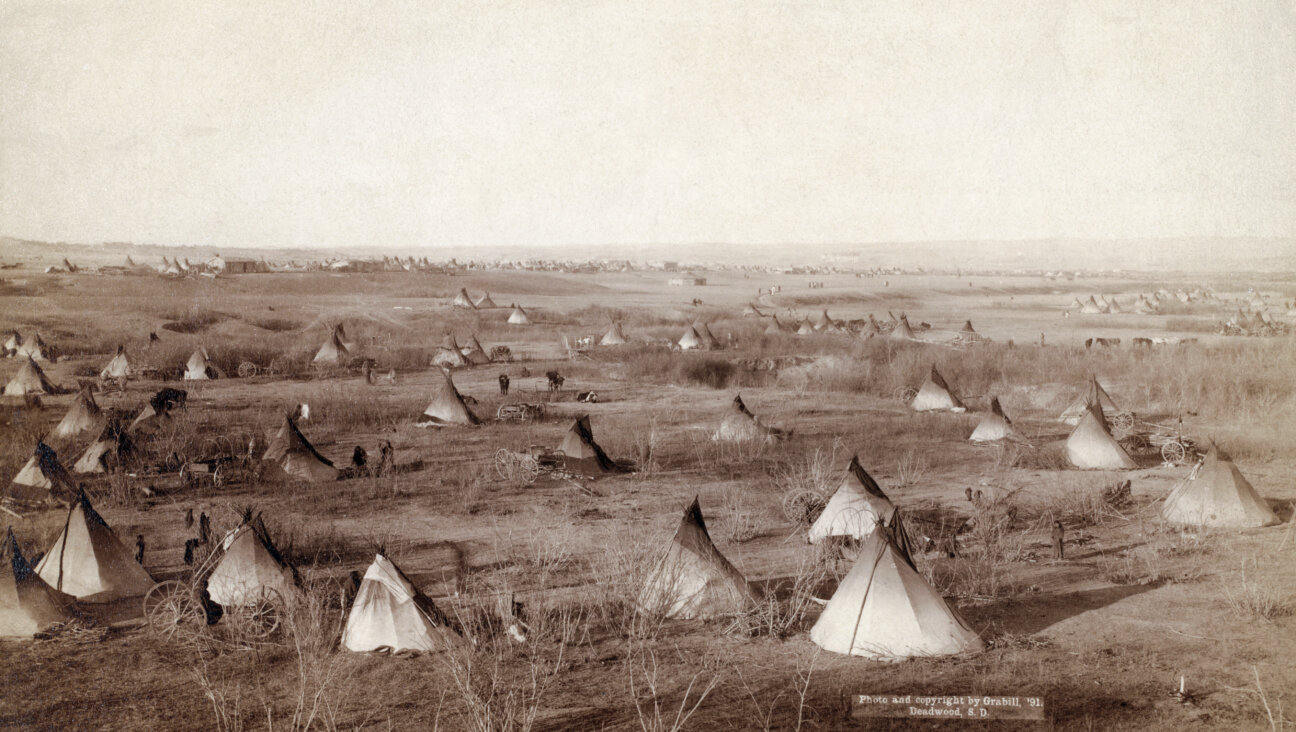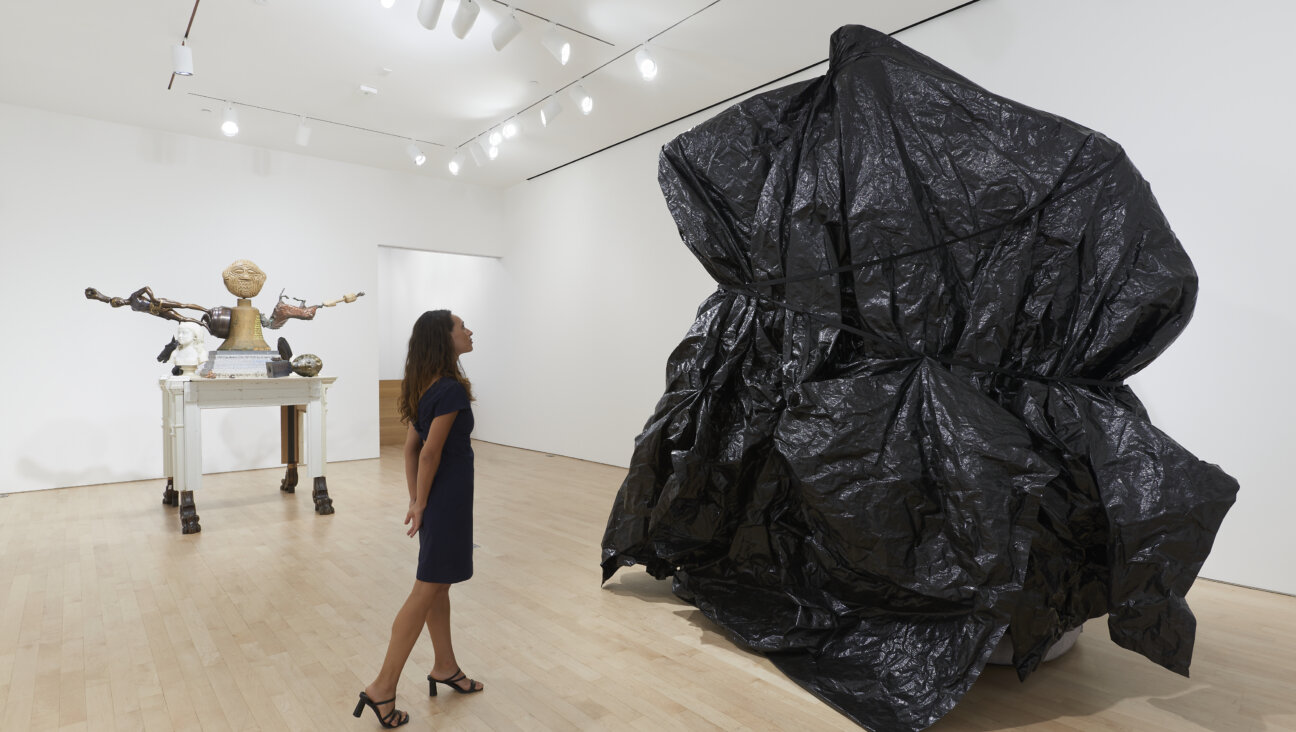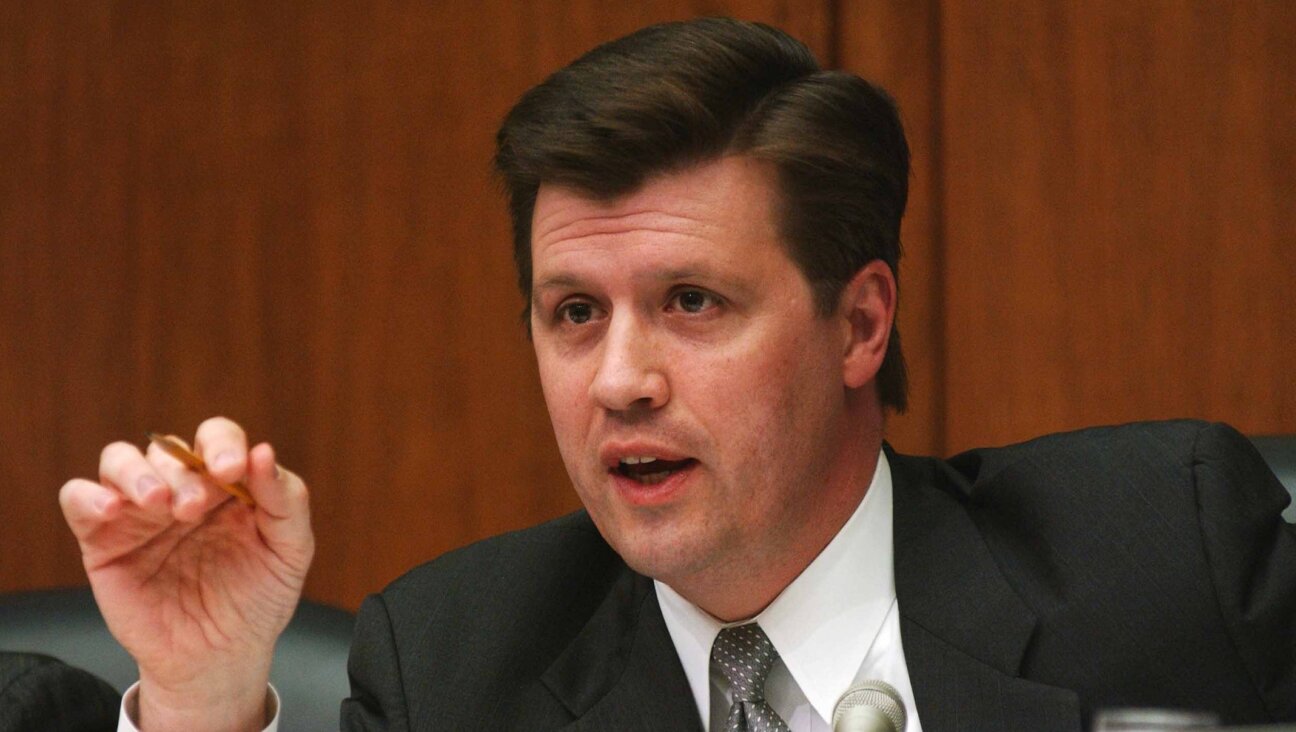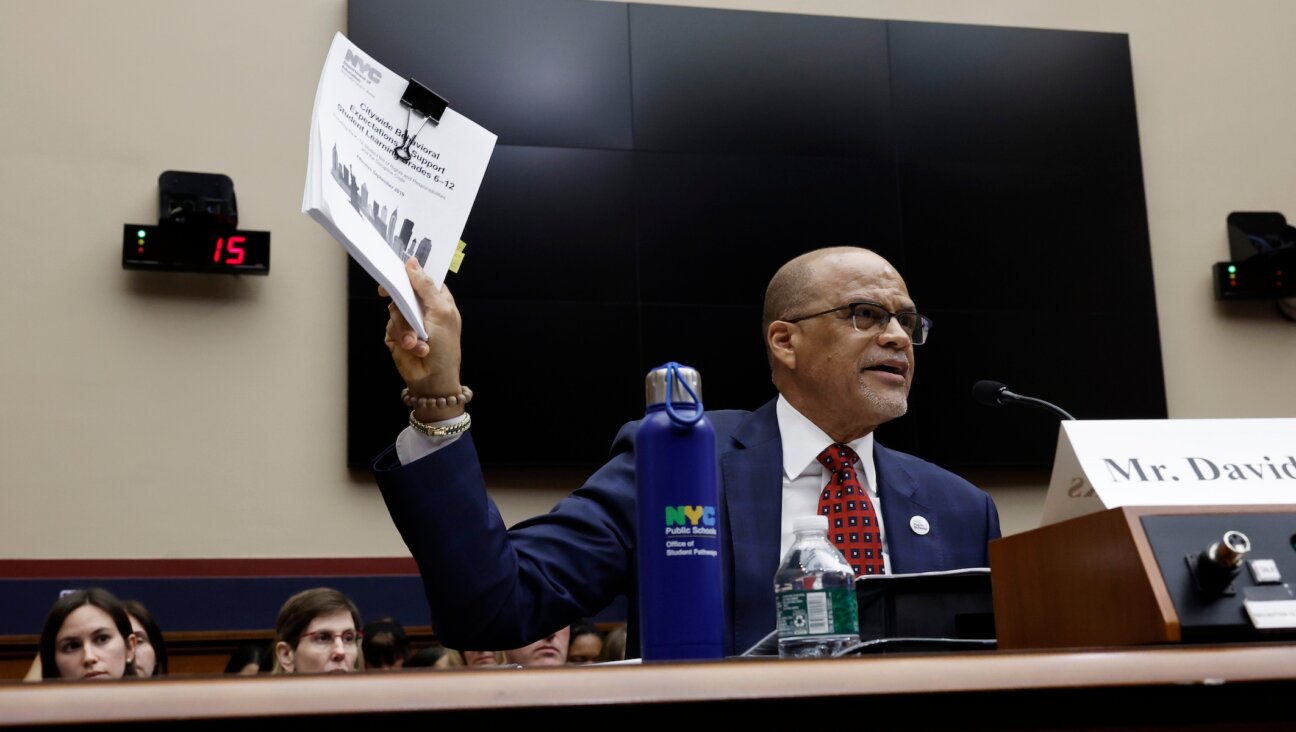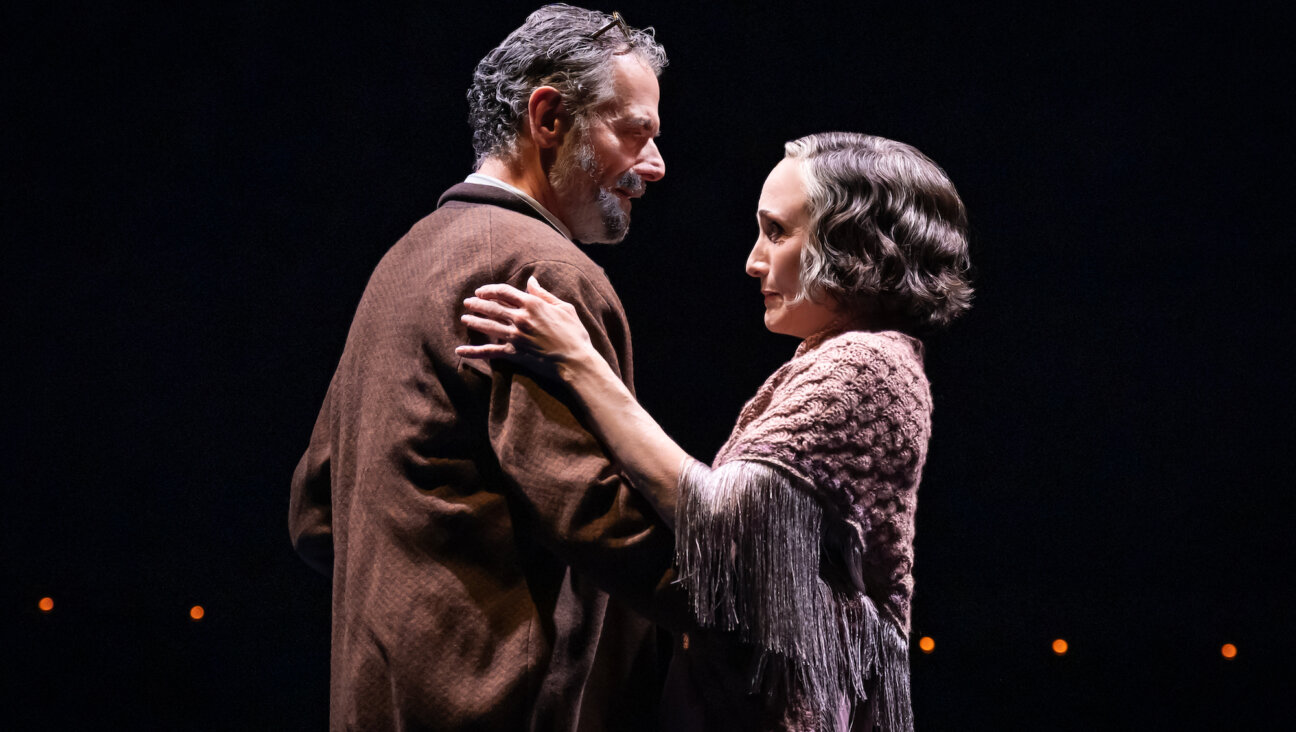Ari Goldman Goes From New York Times Journalist To Amateur Cellist

Good as Goldman: Ari Goldman recounts his struggles in returning to cello in his book ‘The Late Starters Orchestra.’ Image by Kali kotoski
“One of the messages of the book is that you can’t wait for brilliance.” Spoken by Ari Goldman, veteran journalist for the New York Times, author of four books, including 1992’s “The Search for God at Harvard,” and my former professor at Columbia Journalism School, these words seemed odd to me — the life lesson I’d taken home from the 10 frantic months at J-school costing two annual salaries was that you should always bend over backwards to get every detail perfectly right
Goldman, it turns out, isn’t talking about his profession but about his other passion: playing the cello. When it comes to his musical endeavors, he considers himself anything but perfect. (“If I had to make a living as a musician, I’d starve,” he says.) He first took lessons in his mid-20s, but stopped playing at the age of 35, being too occupied with his job and family. When he witnessed his youngest son playing the same instrument in a youth orchestra, he asked if he could join, becoming by far the oldest student. The experience was later commemorated in an article for The New York Times, after which he was invited to join the Late Starters Orchestra, a New York City group of amateur string players of all levels. Newly motivated, he hatched the plan to become good enough to play for his guests at his 60th birthday party.
He describes what it took to reach this ambitious goal in his latest book, “The Late Starters Orchestra,” which is full of candid observations, funny scenes and interesting background information about music history and psychology. It’s an easy read, and anyone who has ever attempted to play an instrument will sympathize with Goldman’s struggles, which he describes with self-deprecating humor.
My initial hesitation to write about a book of a former teacher of mine (what if I found out details about his personal life I didn’t want to know?) turned out to be as unfounded as my anxiety about the interview (would he comment on my note-taking technique?). Goldman talked openly about his motivation for writing the book, the challenges he faced, and what being an amateur musician has in common with his approach to Judaism.
Anna Goldenberg: What was it that made you write an entire book about the Late Starters Orchestra? You also wrote an article a couple of years ago —
Ari Goldman: — called “Big Cello, Little Cello” for the New York Times about playing with my son, and I realized there was more to say, and more of a story to tell, and that there was a message for other people. It’s not just about music, it’s not just reaching for music, it could be any sort of thing you aspire to that’s hard to do, and that seems a little beyond you. Especially for people later in life, when you realize that there are things you’ve always wanted to do but never had a chance to do, and never had a chance to pay attention to. Whether that’s learning a language, or gardening, or playing basketball, horseback riding — whatever sort of dream you have that you defer. Americans are living longer [and] get more leisure time. I wrote the book to tell the story of this lifelong quest, and I hope to inspire other people to music and to other pursuits.
Judaism plays a significant part in your life.
In the book I talk about returning to Judaism with the ba’al teshuva movement — people who were not religious who become observant. I liken it to coming back to an instrument. I’m a ba’al teshuva when it comes to the cello. A rabbi friend asked if I would come to his shul and speak. It’s an Orthodox shul, but most of the people aren’t very observant. I said, “Okay, but I can’t play the cello on Shabbat.” The rabbi said, “I don’t want you to play the cello, I want you to inspire people to take up Judaism. You’re a late-starter when it comes to music. You could be a late-starter when it comes to learning Hebrew, or to being observant, or to keeping kosher. You don’t have to do it perfectly — even if you’re mediocre at it, that’s good.”
Most congregations don’t play instruments. Do you think that’s a good thing?
I write in the book about how the voice of the cantor is very much like the sounds of the cello. The cello connects me in some way to the synagogue service. [Orthodox services] would be enhanced in some ways by musical instruments but it would also detract from the focus on the voice. When I was young, I was the star cantor in my shul, and I sang. In some way, I try to recapture that by playing the cello. It’s the cantor’s voice I no longer have.
What was the most challenging part about writing this book?
It’s very hard to write about music because words can never capture [it]. I very much admired music writers and music critics, but I admire them even more now. To find the language to describe a musical piece or experience, and to capture sound that by its very definition is beyond words is hard.
In the book you cite studies that show how music instruction can sharpen your brain. Did you feel any effect yourself?
It just gives me a lot of pleasure and comfort. It’s a retreat from our overly plugged-in world. There are just so many electronic stimuli in our lives. For me, playing a classical instrument is a way to disconnect. There are no wires, no plugs. It’s just wood and strings and it’s kind of pure.

I hope you appreciated this article. Before you go, I’d like to ask you to please support the Forward’s award-winning, nonprofit journalism during this critical time.
Now more than ever, American Jews need independent news they can trust, with reporting driven by truth, not ideology. We serve you, not any ideological agenda.
At a time when other newsrooms are closing or cutting back, the Forward has removed its paywall and invested additional resources to report on the ground from Israel and around the U.S. on the impact of the war, rising antisemitism and the protests on college campuses.
Readers like you make it all possible. Support our work by becoming a Forward Member and connect with our journalism and your community.
Make a gift of any size and become a Forward member today. You’ll support our mission to tell the American Jewish story fully and fairly.
— Rachel Fishman Feddersen, Publisher and CEO
Join our mission to tell the Jewish story fully and fairly.








